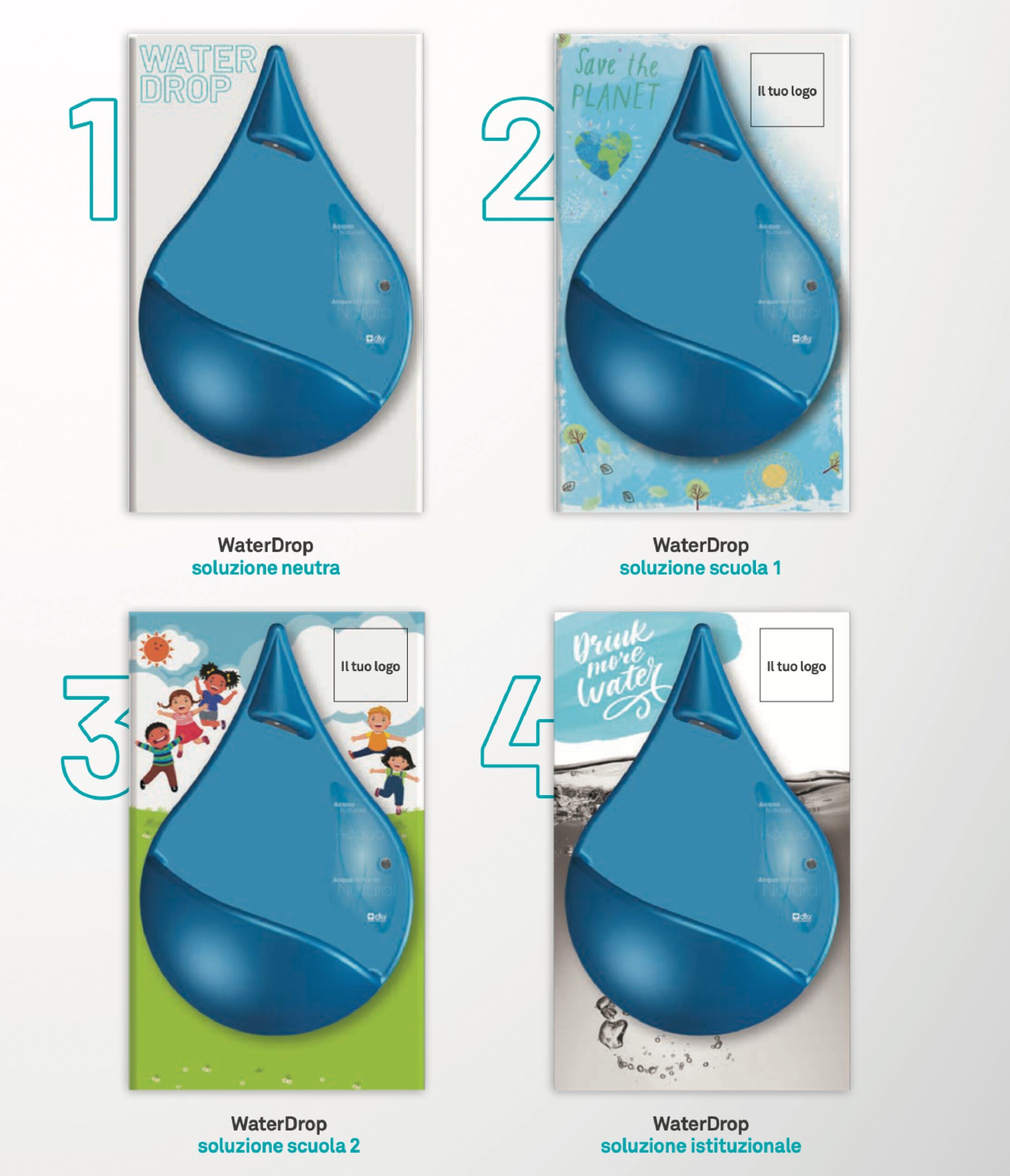


The water dispensers in schools today represent one of the most effective solutions for promoting environmental sustainability among the younger generations, as demonstrated by the recent call RI.CIRCO.LO of the Lombardy Region, which allocated 10 million for waste prevention projects. Among the eligible initiatives, these devices are particularly relevant not only as a practical solution for reducing plastic waste, but also as powerful tool for environmental education. The Lombardy initiative is part of a broader context of ecological transition that sees Italy committed to achieving the goals of the 2030 Agenda for Sustainable Development. We of DKR that we provide water dispensers not only for schools but also for offices, sector horeca e water houses we are aware of theimportance of sustainable solutions. Our experience has enabled us to develop innovative and technologically advanced devices. We are proud to contribute to the ecological transition by working closely with institutions and communities.
The call, approved by Decree No. 12206 of 6 August 2024, was attended by 87 projects by municipalities, unions of municipalities, mountain communities, provinces and the Metropolitan City of Milan. The enthusiastic response from the region demonstrates the need for innovation in environmental management practices, starting from the very places of training. The total budget was divided into four lines of action: waste prevention infrastructure such as solidarity hubs and emporiums (EUR 2 million), reuse centres (EUR 3 million), waste prevention (EUR 1 million) and implementation of collection (EUR 4 million).
Regional councillor for the Environment and Climate, Giorgio Maione, emphasised how Lombardy is already a world reference in waste management, having achieved the goal 'zero landfill' for municipal waste and a separate collection of 75%. These excellent results are the result of a solid alliance with the municipalities and targeted investments such as this tender. The Lombardy model shows that collaboration between institutions, businesses and citizens is essential to build a sustainable future.
The installation of water dispensers in schools fits perfectly into the funding line dedicated to waste prevention, meeting multiple educational and environmental objectives. These devices allow students to fill their reusable flaskseffectively eliminating the daily purchase of single-use plastic bottles. The decision to focus on school environments reflects a forward-looking strategy, considering that habits acquired at a young age tend to become established over time.
From a pedagogical point of view, the presence of these devices in schools transforms every moment of hydration into a hands-on learning opportunity on sustainability issues. Students learn through direct experience the importance of reducing the environmental impact of their daily actions, developing a cecological knowledge that will accompany them throughout their lives. Many schools have integrated these systems into cross-curricular educational projects, involving different subjects and creating innovative learning paths.
The implementation of water distribution systems in school buildings brings significant economic benefits for both households and governments. Households save on the daily purchase of water bottles, while municipalities reduce their plastic waste management costs and improve their environmental performance.
In fact, in terms of environmental impact, each school water dispenser can avoid the production of thousands of plastic bottles per year. Considering that an average school can accommodate hundreds of students, the multiplier effect of this simple innovation becomes immediately apparent. Life cycle analyses show that the reduction of CO2 emissions can reach several tonnes per year per individual device.
The success of the Lombardy call demonstrates how public funding can catalyse change towards more sustainable practices. The investment in water dispensers in schools is an example of how small actions can generate big results on a territorial scale. The Lombardy model provides not only initial funding but also training and monitoring programmesensuring the long-term sustainability of the interventions.
The distribution of EUR 10 million from the RI.CIRCO.LO call for proposals between the various Lombardy provinces shows a widespread commitment involving different territories. Bergamo, Brescia and Sondrio are among the provinces that have received significant funding, demonstrating how sustainability is a shared priority throughout the region and can act as a forerunner for other similar initiatives, helping to form more aware and active citizens.
At DKR, we have developed innovative systems that are particularly suitable for school contexts, which distribute superior quality water and offer smart functionality such as the possibility of customising the type of water to be delivered to each individual user, offered by the AWA line.
Our distributors are designed to be perfectly integrated into that environmentwith an attractive design and an intuitive interface that makes it easy for students and school staff to use.
In addition, we offer an ongoing monitoring and evaluation service to ensure that sustainability goals are achieved and maintained over time, creating a lasting and positive impact on school and wider communities.
If you are interested in finding out how we can help you make your school, office or sphere of activity more sustainable, please contact us. we invite you to contact us for a free, personalised consultation. Our team of experts will be happy to support you in accessing available funding and implementing the solution best suited to your specific needs.